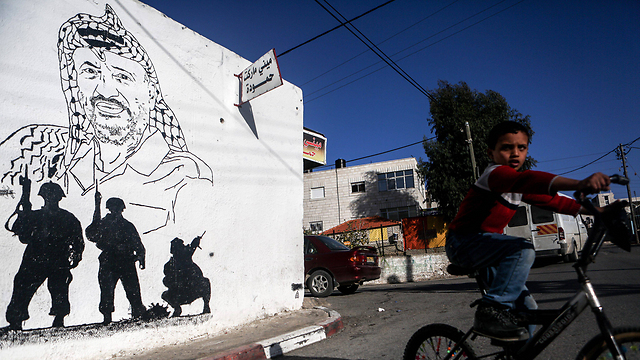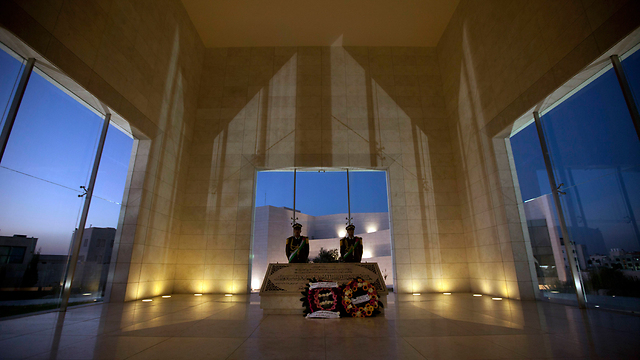
Thousands of Palestinians turned out in Ramallah on Tuesday to mark the 10th anniversary of the death of Yasser Arafat, Fatah founder and Palestinian leader who for decades was the driving force behind the Palestinian bid for statehood and denounced by Israel as a terrorist.
Arafat died at the age of 75 on November 11, 2004 in a Paris military hospital, where he had been airlifted days earlier suffering from a serious illness.
Arafat's successor and erstwhile deputy Mahmoud Abbas made a speech during the ceremony at the Muqata, Arafat's presidential compound where he had spent his final years, held virtual captive by an Israel enduring a massive wave of Palestinian terrorism, which it accused Arafat of sponsoring. After his death, the compound also became the site of Arafat's grave and a shrine to him.
Abbas accused Israel of dragging the region into a religious war, and vowed that East Jerusalem would be part of a Palestinian state. On Sunday, he pledged to move Arafat's grave to Jerusalem - something Israel had rejected at the time of his death - when the Palestinian state was created.
Meanwhile, events to mark the occasion in the Gaza Strip were cancelled after the homes of Fatah members were bombed last week, causing fresh tension between Hamas, which controls the Strip, and rival organization Fatah, which rules the West Bank. Tributes have been planned, however, across the West Bank.

Abbas announced Monday that Arafat's shrine would be moved to Jerusalem, "the capital of Palestine", at the earliest opportunity, the Maan news agency reported.
Speaking at the opening of an Arafat museum in Ramallah. Abbas said that the late leader deserved to "remain immortal in the hearts of our people."

Much speculation and conspiracy theories surrounded the death of Arafat, who was flown to France suffering from nausea, vomiting and abdominal pain.
According to leaked medical records, Arafat's illness began four hours after eating a meal in his Ramallah compound in early October. Palestinian, Egyptian, Jordanian and Tunisian doctors examined Arafat but after receiving various treatments he was finally sent to France.
French doctors diagnosed Arafat with a serious blood disorder known as Disseminated Intravascular Coagulation (DIC) and were not able to treat the illness which subsequently led to Arafat falling into a coma and dying.
Despite the official accounts of Arafat's death, several Palestinian officials said that Israel poisoned Arafat. However, independent experts who reviewed Arafat's medical records said that Arafat did not suffer from extensive liver and kidney damage that would be expected of someone who was poisoned.















